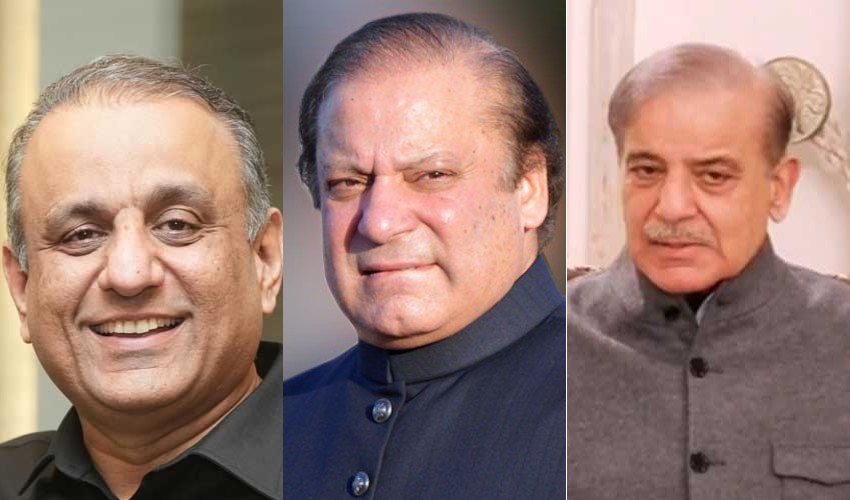
ISLAMABAD, Feb 5, 2024 (BSS/AFP) - Pakistan goes to the polls on Thursday
following a lacklustre election campaign overshadowed by court battles and
accusations by rights groups that the vote is not being held on a level
playing field.
Here is a look at the main players:
- Nawaz Sharif -
Dubbed the "Lion of Punjab", Sharif's Pakistan Muslim League-Nawaz (PML-N) is
expected to win enough seats to govern alone or form a ruling coalition,
allowing him to become prime minister for a fourth time.
He has never completed a full term, however, and between stints in power or
in the opposition has spent years in jail or in exile abroad after being
convicted in multiple graft cases.
The 74-year-old is one of the nation's wealthiest men, from a family that
built its fortune in the steel business and has shared power for several
decades.
Often draped in a Gucci scarf, he is admired by supporters for his
approachable "man of the soil" demeanour.
He is seen as a fiscal conservative, champion of economic liberalisation and
free markets, and also keen on improving ties with arch-foe India.
- The military -
The army, considered the country's strongest institution, has ruled Pakistan
for roughly half its nearly 76-year history, and is widely believed to
control foreign and defence policy even during periods of civilian rule.
They are also the guardians of the country's nuclear weapons stockpile since
Pakistan became an atomic power in 1998, weeks after India announced the
same.
With nearly 1.5 million active service members and reserves, the military is
the world's 10th biggest, according to the Institute for Strategic Studies.
Political parties and their leaders rise and fall with the backing of the
generals, although the army routinely denies interfering in elections.
The military is the country's biggest landowner, its chief of staff sits on
the Special Investment Facilitation Council -- the country's top economic
decision-making body -- and the boards of charities, sporting associations,
state enterprises and parastatals are dominated by retired officers.
- Imran Khan -
A former prime minister booted from office by a vote of no confidence in
April 2022, Khan will sit out this election due to a series of jail
sentences, including 14 years for graft, 10 for treason and seven for what
the court dubbed an illegal marriage under Islamic law. He has also been
disqualified from politics for a decade.
His influence will still loom large, however, and despite being severely
hamstrung by the military establishment his Pakistan Tehreek-e-Insaf (PTI)
party could still put in a good showing this week.
It would be easy to write off the charismatic former international
cricketer's political career, but Khan won matches from seemingly impossible
positions as national captain, and Pakistan has seen dozens of politicians
sentenced to lengthy prison terms -- only to see them overturned when they
are back in favour.
Khan enjoyed genuine popular support when he became prime minister in 2018,
but he fell out spectacularly with the military establishment that nurtured
his rise.
He then waged a risky and unprecedented campaign of defiance against the
military, but when his supporters trashed an army commander's HQ last May
after his first arrest, it was a final straw.
- Shehbaz Sharif -
Nawaz's younger and less charismatic brother, Shehbaz became prime minister
in 2022 after Khan was booted out in a National Assembly vote of no
confidence.
Analysts say he would not make any important decision without first
consulting his brother -- exiled in London to escape a jail sentence -- but
they are known to disagree on some issues, including the military.
A workaholic who dresses usually in safari suits, Shehbaz has been at the
forefront of a lacklustre PML-N election campaign, often leading rallies in
the absence of his brother.
Observers suggest he will be given a senior role in any government his
brother may form -- likely in charge of a key planning ministry.
- Bilawal Bhutto-Zardari -
Bhutto-Zardari's family were once centre-stage in Pakistan's politics, their
fortunes rising and falling in a Shakespearean saga of tragedy and power.
He is the son of Benazir Bhutto, the world's first Muslim woman leader, who
was twice elected prime minister and assassinated in 2007. His grandfather
Zulfikar Ali Bhutto, also a prime minister, was ousted in a coup and executed
in 1979.
His father Asif Ali Zardari has previously been president of Pakistan,
nicknamed "Mr 10 percent" by many in Pakistan because of numerous accusations
of corruption.
The floppy-haired 35-year-old enters Thursday's election with his first
experience of statesmanship, having served as foreign minister in the
coalition that ousted Khan in 2022.
While his Pakistan Peoples Party (PPP) is unlikely to win enough support to
govern alone, their dominance of southern Sindh province gives them clout
with anyone seeking to form a coalition.